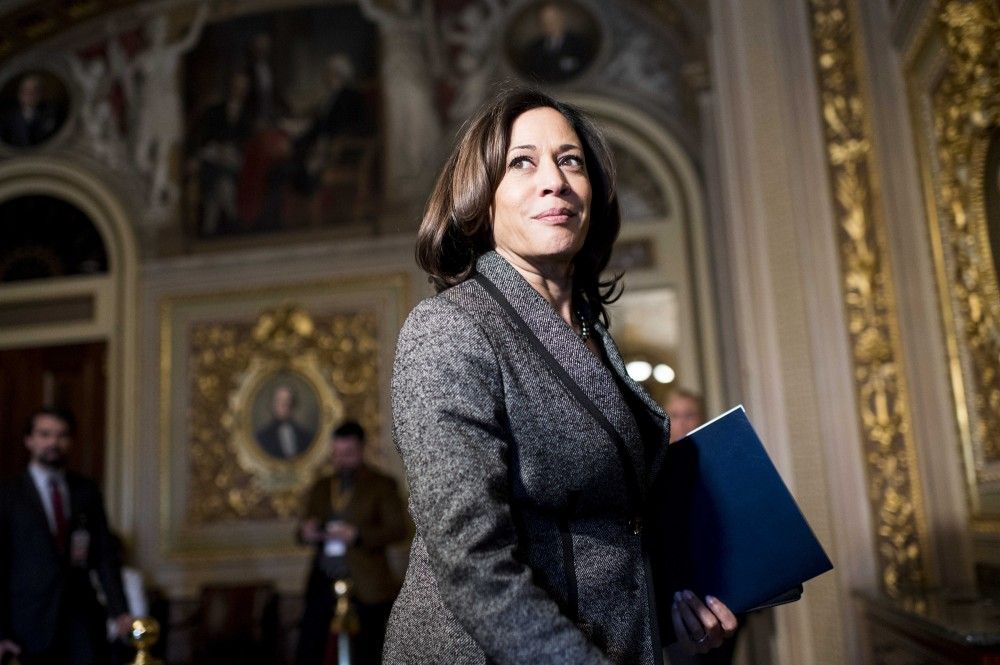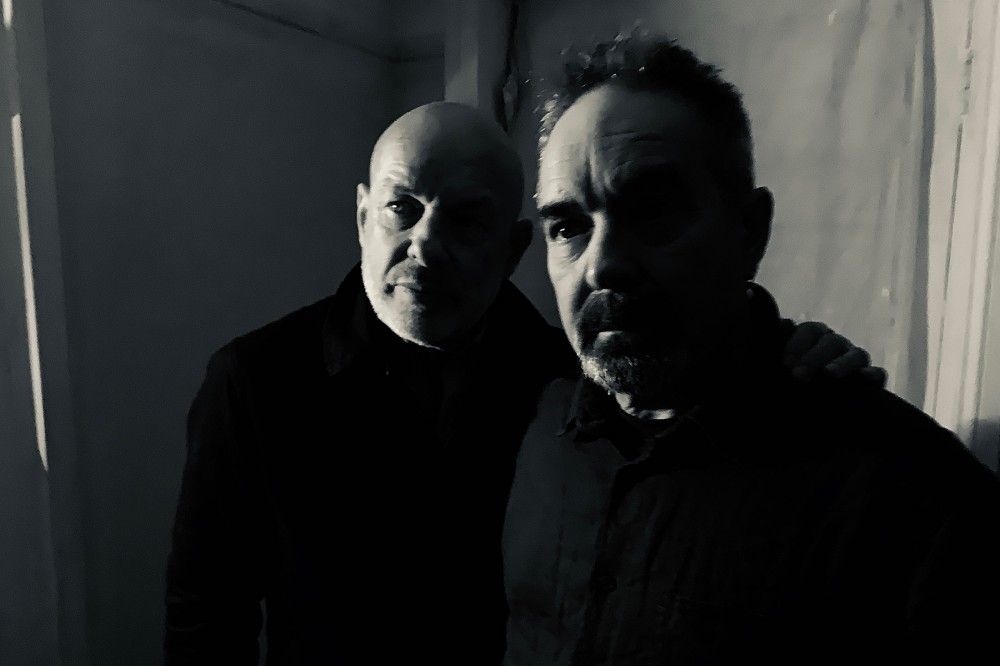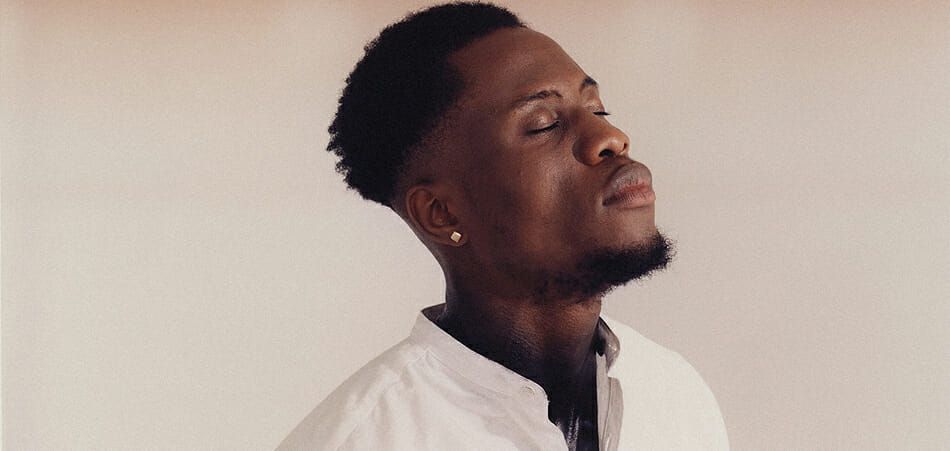
Kamala Harris' Plan to Save the Election
No one should have ever had to risk her or his life to vote, as Wisconsin residents did last week. Republicans kept the election open against both Democratic Gov. Tony Evers’ wishes and the recommendations of public-health experts. Texas, for now, has avoided that fate. On Wednesday, a state court judge sided against Republican Secretary of State Ken Paxton and with the American Civil Liberties Union, ruling that any registered voter worried about contracting the coronavirus at an in-person site would be able to vote by mail.
The uproar over Wisconsin’s primary and the joy emanating from voting-rights advocates over the Texas decision are both signs that the question of how America will vote for a president in November is becoming the urgent priority that it needs to be. In the wake of both, , a rumored consideration for the vice presidential spot on presumptive Democratic nominee Joe Biden’s ticket, is offering a sweeping new proposal designed to solve this massive problem all at once.
The junior senator from California on Thursday introduced the VoteSafe Act of 2020, a $5 billion piece of legislation that would satisfy what voting experts and advocates estimate states need to enact necessary reforms. Working closely with various secretaries of state, Harris crafted a bill that would standardize early in-person voting periods, mandating that each state have at least a 20-day period ahead of the November 3rd general election. It would also require states to permit no-excuse mail-in absentee voting for this election, allowing any citizen to submit such a ballot, regardless of explanation. The bill would also maintain minimum due process protections for each voter.
The Harris legislation sets aside $5 billion for this task, considerably more than the $400 million in the recently signed coronavirus relief bill. Half of that would help states establish whatever infrastructure is needed for no-excuse absentee voting and early in-person voting. The other $2.5 billion would come in the form of discretionary grant-funding for states to help improve both safety and accessibility of election systems — including the implementation and promotion of curbside voting, which allows voters to complete ballots safely in their cars while maintaining physical isolation. The grants would also fund improvements in voter registration, polling-place and line management, and training of poll workers.
Speaking with Rolling Stone about the $5 billion legislation, the former presidential candidate said “this is about making sure that in our country, no one should have to decide about their right to vote versus their health.” In addition to the short-term fixes for 2020, Harris added that the bill offers pathways to modernize how our states help deliver greater ballot access to disabled Americans, to indigenous tribes, and to those who speak English as a second language.
Sonia Gill, a senior legislative counsel with the ACLU, said that the bill’s elasticity was one of its key selling points. “There needs to be an approach from Congress that acknowledges the variances and existing state laws, and permits states the flexibility to serve their voters,” Gill said. “We firmly believe that this bill does that.”
Along with continued prosecution of suppressive laws and long-overdue fixes to a Voting Rights Act that was maimed by the 2013 Shelby County v. Holder Supreme Court decision, Harris called for a national implementation of vote-by-mail. However, the senator recognized that some voters, particularly those in marginalized groups targeted by voter suppression, may be resistant to trust putting their ballots in the mail and would instead chance a trip to the polls — and the lines that come from them.
The senator noted that vote-by-mail has worked well in her home state of California. “There are those who enjoy the tradition, and I completely understand why, especially for those who have been historically denied the right to vote — African Americans, women,” Harris said. “So many of them know that people fought and died and bled for our right to vote. We have to start adjusting to new forms that make it easier because the greatest exercise of patriotism, the greatest exercise of the franchise, is to actually vote.”
President Trump has falsely labeled voting by mail as “corrupt,” even as he does it himself. However, he has already lost a large degree of that fight. All six of the key swing states in the fall election — Pennsylvania, Florida, Arizona, North Carolina, Michigan, and the aforementioned Wisconsin — permit their residents to cast a ballot by mail for any reason. But a number of those states, along with more-conservative battlegrounds like Iowa and Maine, may face attacks from state lawmakers on their vote-by-mail laws. In addition, there may be no adequate mail service to deliver those votes, as the U.S. Postal Service may become insolvent by the end of September if Trump continues to refuse a bailout.
The Postal Service’s issues are but one reason why the senator doesn’t regard vote-by-mail as a panacea for the problems presented by the coronavirus pandemic. Like Harris, Gill also emphasized to Rolling Stone the importance of expanding the number of in-person voting sites, noting that “for large groups of voters, particularly vulnerable voters, it sometimes is the only option they can exercise.”
But even if the bill made it through the Republican-controlled U.S. Senate, one major obstacle that Harris faces is the president, who is unlikely to sign onto any expansion of the voting franchise. He said during a late-March Fox News appearance that “you’d never have a Republican elected in this country again” if Democrats had gotten their voting-rights wish list in the first relief bill.
Harris doesn’t believe that this bill may be doomed, but allowed that it could serve as a template for states to file their own similar pieces of legislation. “Absolutely. Absolutely. Absolutely,” Harris said. “And that’s why I’ve worked so closely with the California Secretary of State Alex Padilla and others. This is doable. And I think that there are these moments of a crisis that give us the courage and encouragement to try something that actually may be better than how we were doing it before.”



